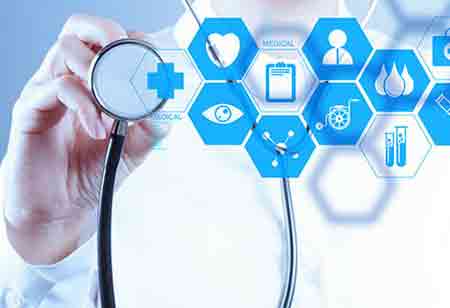THANK YOU FOR SUBSCRIBING
A Look into the Applications of Big Data in Medical Research
It is no secret that drug production is critical to humanity's future. However, drug discovery and development is merely the beginning of the process. A pharmaceutical medicine must pass numerous rounds of rigorous testing before it can be sol

By
Apac CIOOutlook | Wednesday, May 19, 2021
Stay ahead of the industry with exclusive feature stories on the top companies, expert insights and the latest news delivered straight to your inbox. Subscribe today.
It is no secret that drug production is critical to humanity's future. However, drug discovery and development is merely the beginning of the process. A pharmaceutical medicine must pass numerous rounds of rigorous testing before it can be sold on the market.
FREMONT, CA: Big data has various applications, but one of the most important is its ability to promote medical research, thereby enhancing the quality of human life. Let it look at some of the ways big data is advancing medical research and healthcare in this section:
Healthcare Monitoring
Data can be used for predictive medical research, assisting in the prevention of the spread of potential diseases. Understanding patient demographics and their healthcare requirements, for example, by tracking the medical queries people search for as well as the information they contribute on medical websites, is one strategy to advance preventative treatment and research. This information has the potential to improve forecasting of regional epidemics of various diseases and current public health concerns. As a result, healthcare practitioners can take appropriate preventative actions and dedicate the required resources to battle the regional escalation of certain diseases or health-related issues. This was witnessed in 2014 when the Centers for Disease Control and Prevention used big data through a program called "BioMosaic" to efficiently track the Ebola outbreak, identify at-risk groups, and prevent its spread.
Pharmaceutical Drug Creation
It is no secret that drug production is critical to humanity's future. However, drug discovery and development is merely the beginning of the process. A pharmaceutical medicine must pass numerous rounds of rigorous testing before it can be sold on the market. Testing novel pharmaceuticals is a challenge for pharmaceutical companies worldwide due to issues ranging from tight regulatory regulations to locating people willing to test novel treatments.
Through algorithmic processes and machine learning, big data can greatly speed up the process and feasibility of drug testing. Big data facilitates computation drug discovery, allowing dug creators to employ data applications in the drug creation process rather to carrying out actual lab studies. Pharmaceutical companies can use this information to create realistic models and simulations to test their goods.
See Also: Top Tech Solutions for Healthcare





